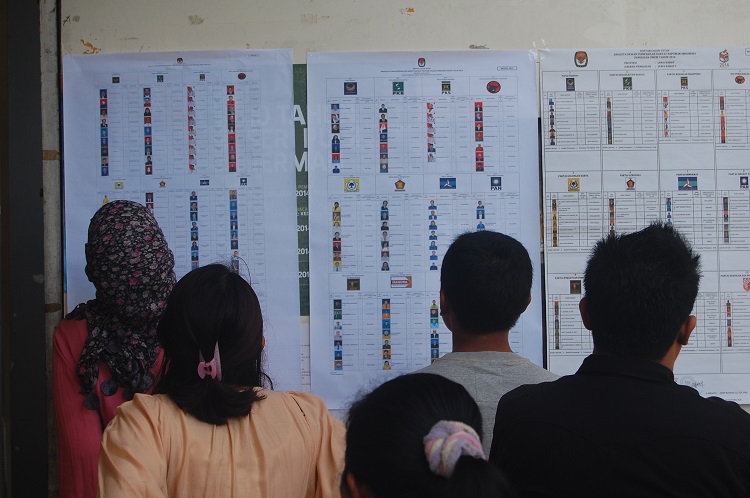Indonesian voters could be forgiven for a sense of déjà vu as they contemplate the 17 April 2019 presidential election. Just like five years ago, the only candidates are once again Joko Widodo (Jokowi) and his old foe Prabowo Subianto. But while the contenders are the same, much has changed in Indonesia since the 2014 elections.
During the first term of President Jokowi, Indonesian democracy has suffered a number of significant setbacks, which not even the most pessimistic observers of Indonesian politics would have predicted after Jokowi’s victory in 2014. The highly-charged 2017 Jakarta gubernatorial election in particular transformed the electoral landscape, taking the social and political polarisation that had already characterised the presidential campaign in 2014 to new heights. The dramatic defeat and subsequent imprisonment of Jokowi’s former deputy Basuki Tjahaja Purnama, then widely known as Ahok, provoked at times harsh governmental retribution against opposition figures and prompted widespread concerns that the 2019 elections could further deepen the divisions in Indonesian society.
Coercive measures against government critics have continued into the early months of campaigning, but in this pre-election Inside Indonesia edition, our authors find that concerns are yet to be borne out. To set the scene, edition editors Dave McRae and Dirk Tomsa analyse how the once stark contrast between the two presidential candidates has diminished, as Jokowi’s democratic credentials have steadily eroded and Prabowo has sought to mix his notorious confrontational rhetoric with efforts to appear more statespersonlike. Noting that the campaign has yet to divide Indonesians to the extent many had feared, the authors nevertheless conclude that Jokowi and Prabowo remain poised to lead Indonesian democracy down two rather different paths.
The article by Nadirsyah Hosen takes a closer look at the influence of religion on the presidential campaign. In the run-up to the election campaign, many Jokowi supporters had expressed concern that Prabowo would once again try to use the kind of sectarian tactics which in 2017 had enabled Anies Baswedan to win the Jakarta governorship. But Hosen argues that while both presidential contenders have indeed resorted to identity politics to strengthen their position, neither has attempted to take it to the extreme levels that led to the eventual conviction of Ahok.
One of the Jokowi camp’s strategies to fend off sectarian attacks has been to appoint a senior cleric as his vice-presidential running mate. The appointment of Ma’ruf Amin has helped Jokowi to shore up support from traditionalist Muslims, but it also alienated many progressive Indonesians. Yet other constituencies such as the urban poor and labour activists have been disappointed with Jokowi for other reasons. Amalinda Savirani examines these reasons, focusing on broken promises in regards to social housing and minimum wage policy. Noting widespread disillusionment with the central government, she finds that many of these groups increasingly look beyond national politics to pursue their goals.
Other voters, meanwhile, are resorting to satire to express their disillusionment with the upcoming elections. Alongside widespread calls on social media to abstain (golput), a fictitious pair of satirical internet meme candidates known as Nurhadi-Aldo or Dildo for short have emerged to capture this zeitgeist. Tunggal Pawestri provides a critical reading of the #DildoforIndonesia phenomenon, arguing that beneath the veneer of social protest lurks a barely veiled sexism rather than an embryonic resistance movement.
Our final piece looks at the almost forgotten legislative elections that for the first time ever will be held on the same day as the presidential poll. Logistically, the legislative elections are massive, with more than 20,000 seats up for grabs in the House of Representatives, the Regional Representatives Council and provincial, municipal and district parliaments. But the shift from separate to simultaneous elections has relegated the parties and candidates vying for parliament seats to a mere sideshow. While the presidential election dominates the media coverage, legislative candidates have been trying rather desperately to make their presence felt. Among these hopefuls are thousands of female candidates who are seeking to end the long-established male dominance in the country’s legislative institutions. Ella Prihatini (also here in Indonesian) assesses the prospects of these female candidates, seeing little chance that the greater number of female candidates contesting the polls this year will lead to significantly more women entering parliament.
The analysis is in. To the voters now the last word.












